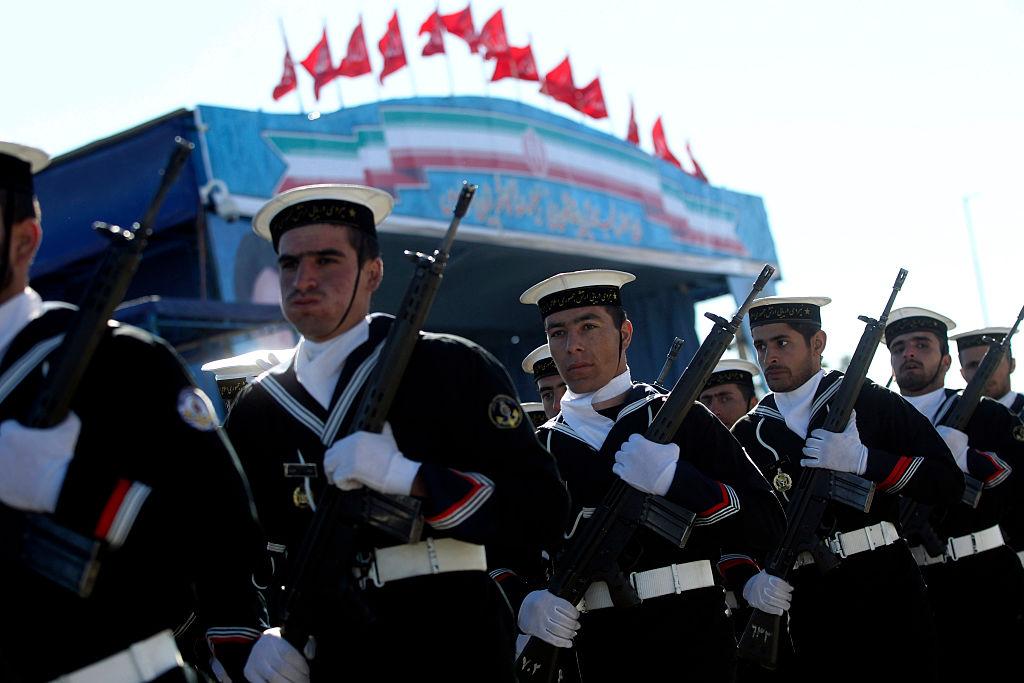Iran responds to US sanctions with military drills and threat of further missile testing
The ‘amateur and irrational policies of the new US administration’ will not jeopardise Iran’s domestic security, foreign ministry says

Your support helps us to tell the story
From reproductive rights to climate change to Big Tech, The Independent is on the ground when the story is developing. Whether it's investigating the financials of Elon Musk's pro-Trump PAC or producing our latest documentary, 'The A Word', which shines a light on the American women fighting for reproductive rights, we know how important it is to parse out the facts from the messaging.
At such a critical moment in US history, we need reporters on the ground. Your donation allows us to keep sending journalists to speak to both sides of the story.
The Independent is trusted by Americans across the entire political spectrum. And unlike many other quality news outlets, we choose not to lock Americans out of our reporting and analysis with paywalls. We believe quality journalism should be available to everyone, paid for by those who can afford it.
Your support makes all the difference.Iran has held military exercises and said it will test more missiles in what the country’s Revolutionary Guard said is a direct response to US “threats and sanctions.”
Revolutionary Guard Air Force commander, Gen. Amir Ali Hajizadeh, told a state-run news agency over that the drills held over the weekend were designed to showcase the power of the Iranian revolution.
“Should the enemy make a mistake, our roaring missiles will rain down on them,” he added.
US President Donald Trump ordered his Treasury Department to publish a list of 13 Iranian individuals and 12 entities facing new sanctions last week, after it emerged that Iran had tested what it said was a non-nuclear ballistic missile.
“The Islamic Republic of Iran is the world's leading sponsor of terrorism and engages in, and supports, violent activities that destabilise the Middle East,” US National Security Adviser Michael Flynn said.
“That behaviour seems continuous despite the very favourable [nuclear] deal given to Iran by the Obama administration. These sanctions target those behaviours.”
In response, several military drills and rocket tests were conducted over the weekend by Iranian forces. In a statement, the country’s foreign ministry said Iran would not allow its domestic security to become the “focus of international debate”.
“The amateur and irrational policies of the new US administration will change nothing about the principles of Iranian politics,” it read.
The sanctions decision comes on top of a far-reaching executive order temporarily banning citizens of Iran and six other Muslim countries - even those with green cards or residency visas - from entering the US. It has since been successfully challenged by several courts across the US.
In retaliation, Iran curtailed all travel visas for Americans for an indefinite amount of time, and the Central Bank announced the country will no longer use the US dollar for official statistics or financial reporting.
The timing of last week’s missile test - which enraged Iranian foe and US ally Israel, although the UN has not yet determined if it broke 2015’s nuclear accord - was also thought to be related to Mr Trump’s ‘Muslim ban’.
The move to renew sanctions reflects Mr Trump’s desire to fulfil his campaign promise about “being tough on Iran.”
Under President Barack Obama the US imposed sanctions on two dozen Iranian individuals, companies and government agencies related to terror rather than nuclear issues, which Mr Trump criticised for being “weak”.
Both Democrat and Republican politicians on the Senate’s Foreign Relations Committee urged that the US should not let Iran’s missile test - one of several in the last 18 months - go unpunished.
International sanctions which have crippled Iran’s economy for decades were lifted as part of the historic 2015 nuclear agreement, in which Tehran agreed to curbs on its nuclear weapons programme.
On Friday, US National Security Adviser Michael Flynn said the missile test was a violation of a United Nations resolution that prohibits Iran from participating in any activity related to ballistic missiles designed to be capable of delivering a nuclear weapon.
Iran, which maintains that the missile could carry a nuclear warhead, subsequently imposed its own set of counter-sanctions targeting the US.
Join our commenting forum
Join thought-provoking conversations, follow other Independent readers and see their replies
Comments